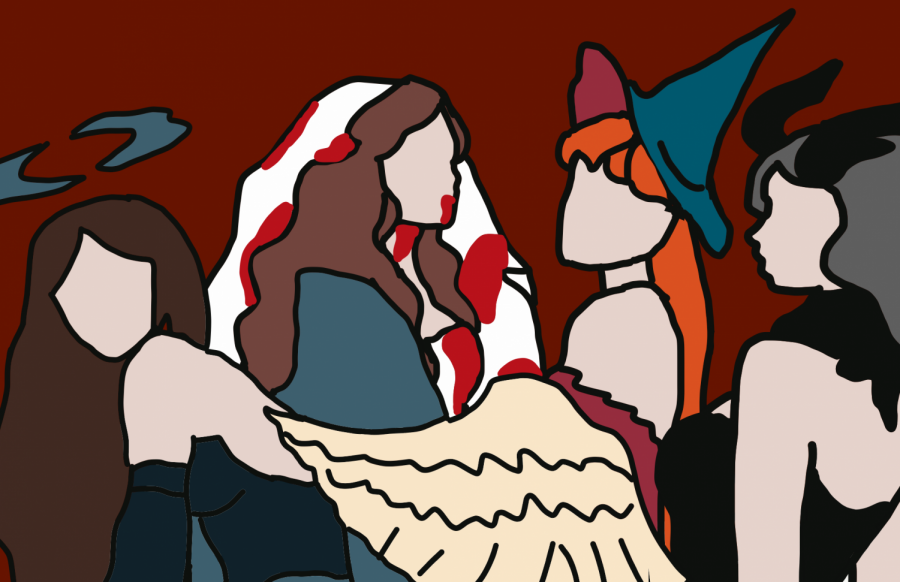Patriarchal values shown through men’s reactions to media
As the feminist movement becomes more influential in society, more women are taking on male-dominated roles in the media.
Photo by Marbella Ramirez
Women being violent in the media harms men’s fragile masculinity as its portrayal becomes more common.
January 30, 2020
Throughout the ages of media, a painfully recurring theme is men being violent toward women. This trope is depicted through many different lenses: domestic violence, romanticized abuse, and the less obvious portrayals, like horror movies in which men are killers who only go after women. However evident, the message is always the same: women are prey.
But times have changed. With feminism’s growing effect on society, the aftermath of the “Me Too” movement, the rising divorce rates (via the new lack of domestic abuse normalization) and the overall number of new opportunities available for women, we are finally being seen in society. Things are changing, and frankly, people’s reactions to certain aspects of media should be changing with them.
Many non-feminist men become uncomfortable when presented with media involving women being violent toward men. It doesn’t always have to be extreme—for example, “Jennifer’s Body” was received with intense horror at the idea of Megan Fox eating a couple of teenage boys—it can be something as simple as a single moment where a woman snaps the wrist of a harasser, such as portrayed in a deleted scene from the movie Captain Marvel. In the scene, a biker approaches Carol Danvers, constantly interrupts her reading, stands uncomfortably close and repeatedly asks her to smile for him. Engaging in a handshake, Danvers displays her superpowers by proceeding to break his hand and steal his motorcycle. This scene received a great deal of backlash from men (including, but not limited to political commentator Ben Shapiro, YouTuber Joey Saladino, and journalist Tim Pool) clamoring that Danvers was a villain and deserved to be thrown in jail for her actions.
“I think the scene was awesome. It was a great display of female power and shows that women are more than objects made to satisfy men,” Simon Boscia (9) said.
There are also examples like the resentment towards “Gone Girl,” in which character Amy Dunne frames her cheating husband for her murder. Many male chauvinists argued against the film, claiming Dunne is evil and a terrible model for women. As stated by Emine Saner, a journalist for The Guardian, one blogger summarized the hatred neatly by saying, “[Amy Dunne] is the crystallization of a thousand misogynist myths and fears about female behavior.”
“I think the film’s execution was wrong; the plot was terribly exaggerated, but the message there did have real importance,” Joshua James (10) said.
Many misogynists become intensely unsettled when presented with media depicting women as being violent towards men, especially in films shifting the balance of power to the other side of the male/female binary. So a female monster whose preferred cuisine is men, or a woman who frames her cheating husband for murder, or a woman who’s response to unwanted sexual advances to break the harasser’s wrist—are all too upsetting.
They’re too scary. Too unacceptable. Men are uncomfortable with being presented with the idea, even in fiction, that their society-given position of power could be put in jeopardy; that the tables could be turned so easily. In that moment of terror, they experience a tiny, tiny fraction of what simply living, moving, existing as a woman in today’s society feels like.
And they flinch, every time.







